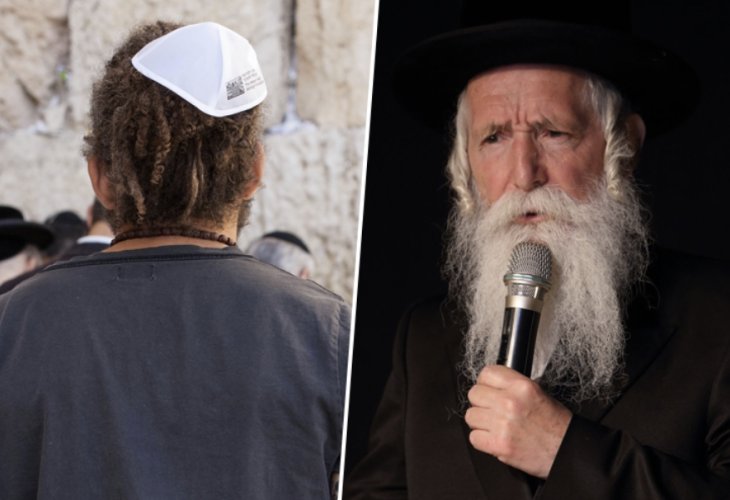Personal Stories
"Rabbi, I’m Jewish—But What Does That Mean?"
A warm story of one question, one answer, and one Jewish soul rediscovered
 (Photos: Flash 90)
(Photos: Flash 90)"I was on a flight from New York to Florida," shares Rabbi Yitzchak Dovid Grossman, the Rabbi of Migdal HaEmek and founder of the Migdal Or institutions, in his book The Light of Shabbat. "One of the flight attendants approached me and said, 'My name is Louie. I’m Jewish—my parents told me so—but I honestly don’t know what that means. Maybe the Rabbi can tell me something I can do to feel more connected to being Jewish.'"
Rabbi Grossman paused for a moment. How do you explain the essence of Judaism—something so deep and beautiful—in a way that’s meaningful yet simple, especially while standing on a plane mid-flight?
Then he smiled and replied, "Did you notice I ordered a 'special kosher' meal? You can start there. Order kosher food. That alone can help you feel more connected to your Jewish identity."
Louie looked puzzled. “I thought that was just a vegetarian meal. I never knew it had anything to do with being Jewish. What is ‘special kosher’?”
Rabbi Grossman answered with a story:
"Imagine the Ford company builds both trucks and fancy cars. Trucks run on diesel. Cars run on gasoline. Now, let’s say you drive up to a gas station and see a truck filling up with diesel, which is cheaper. Would you put diesel into your beautiful car?"
Louie shook his head, confused. "Of course not! It would ruin the engine."
"Exactly," the rabbi said gently. "Even though both the car and truck are made by the same company, they have different engines—different inner workings. A truck can handle diesel, but a car needs something more refined."
He continued, “Hashem, the Creator of the world, made everyone—Jews and non-Jews alike. Everyone has a role in the world. For non-Jews, their spiritual engine is built differently—they can live with a more material kind of ‘fuel.’ But the Jewish soul is delicate, holy. It needs something purer to keep it running well. That’s what kosher food is—it’s spiritual fuel for the Jewish soul. When a Jew eats non-kosher food, it clogs the soul, just like diesel would ruin a car.”
Rabbi Grossman shared a verse from the Torah that says: “Do not defile yourselves with them,” and how our sages interpret it: “Do not read it as defile (v’nitmeitem), but clog (v’nitamtem).” Eating forbidden food doesn’t just affect the body—it clouds the heart and soul.
Then he told Louie a teaching from the Rambam (Maimonides), passed down through his student Rabbi Yehuda Ibn Tibbon:
“When we eat, the food turns into blood. That blood feeds our heart and eventually our brain. If we eat pure food—kosher food—our heart and mind stay pure too. But if we eat impure things, it affects not only our health, but also our thoughts, our emotions, and our connection to truth and goodness. The great rabbis of the Talmud were careful about everything they ate so their souls would stay open to holiness.”
Louie listened closely. It all suddenly made sense.
Before they parted, Rabbi Grossman gave Louie an address in Florida where he could find more answers. The very next day, while Rabbi Grossman was having breakfast with Rabbi Groner, a local community rabbi, there was a knock at the door.
It was Louie.
"I introduced him to Rabbi Groner and said, ‘Here is a Jew who wants “special kosher” even off the plane!’”
Louie and Rabbi Groner developed a deep connection. With love and kindness, Rabbi Groner helped Louie begin his journey back to Judaism, bringing him closer to his roots—and Hashem.
Each Jew has a spark inside—a soul longing to reconnect. Sometimes, all it takes is one question… and a kosher meal.

